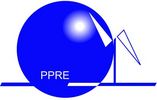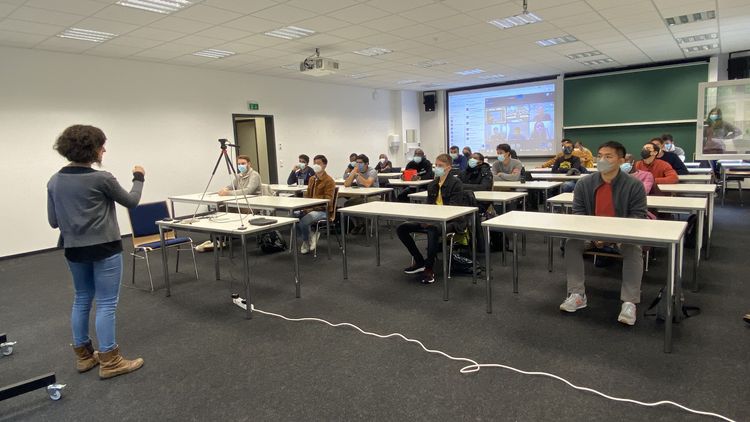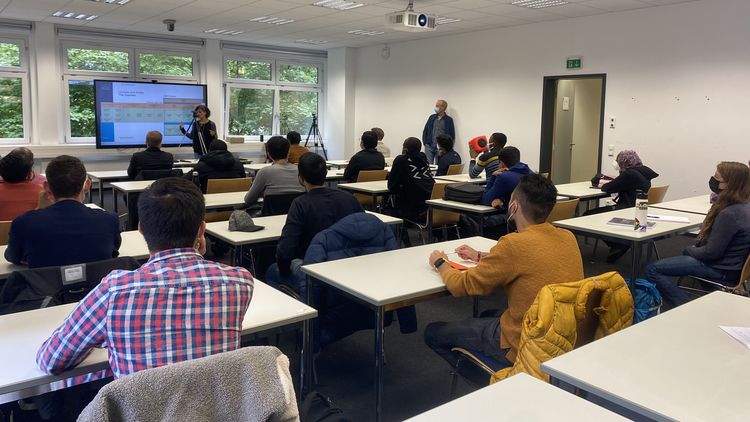- written by Maria Fernanda Davila
The PPRE staff has worked for a bit more than a year in a project called PPRE Digital, funded by DAAD in the frame of the “International Programme Digital (IP Digital)”. The objective of the project was to develop hybrid teaching and learning concepts, which would allow the SuRe and EMRE programs to transition towards digitalization.
There is a lot of confusion with respect to the terms hybrid and blended learning. In the context of this project, the goal was to be able to offer lectures and seminars simultaneously online and in person. Additionally, the content and resources were also available for synchronous and asynchronous learning.
Around the topic of digitalization in education there has always been a lot of controversy, since the benefits of traditional (face-to-face) teaching are hard (or impossible) to replace. Nevertheless, the project established some core requirements for successful learning and, based on them, developed a concept during the first six months, where a pilot program was carried out in the “Sustainability of renewable energies” lecture.
On the other hand, hybrid learning has also a very significant potential. The flexibility it offers makes it possible to have a program, where all students from every country of the world are welcome (just like PPRE), but now the students do not have to be here at all times of the program. This is crucial especially during pandemic times, where students are having so many problems with visas and travel restrictions. Most importantly, the program is also available for students, who are not able to attend because of health issues, personal situations or career opportunities. The well-developed digital tools also allow students to learn at their own pace, therefore it helps in the fact that such heterogeneous groups (as PPRE) normally have completely different backgrounds and previous knowledge.
After iteration and correction done to the concept from the feedback of the pilot program, the project successfully carried out a complete hybrid semester during the winter semester 2021-2022. After the evaluation sessions, the project has already gathered important results. We hope that we can all learn from this new methodology and keep implementing this as best practice.





